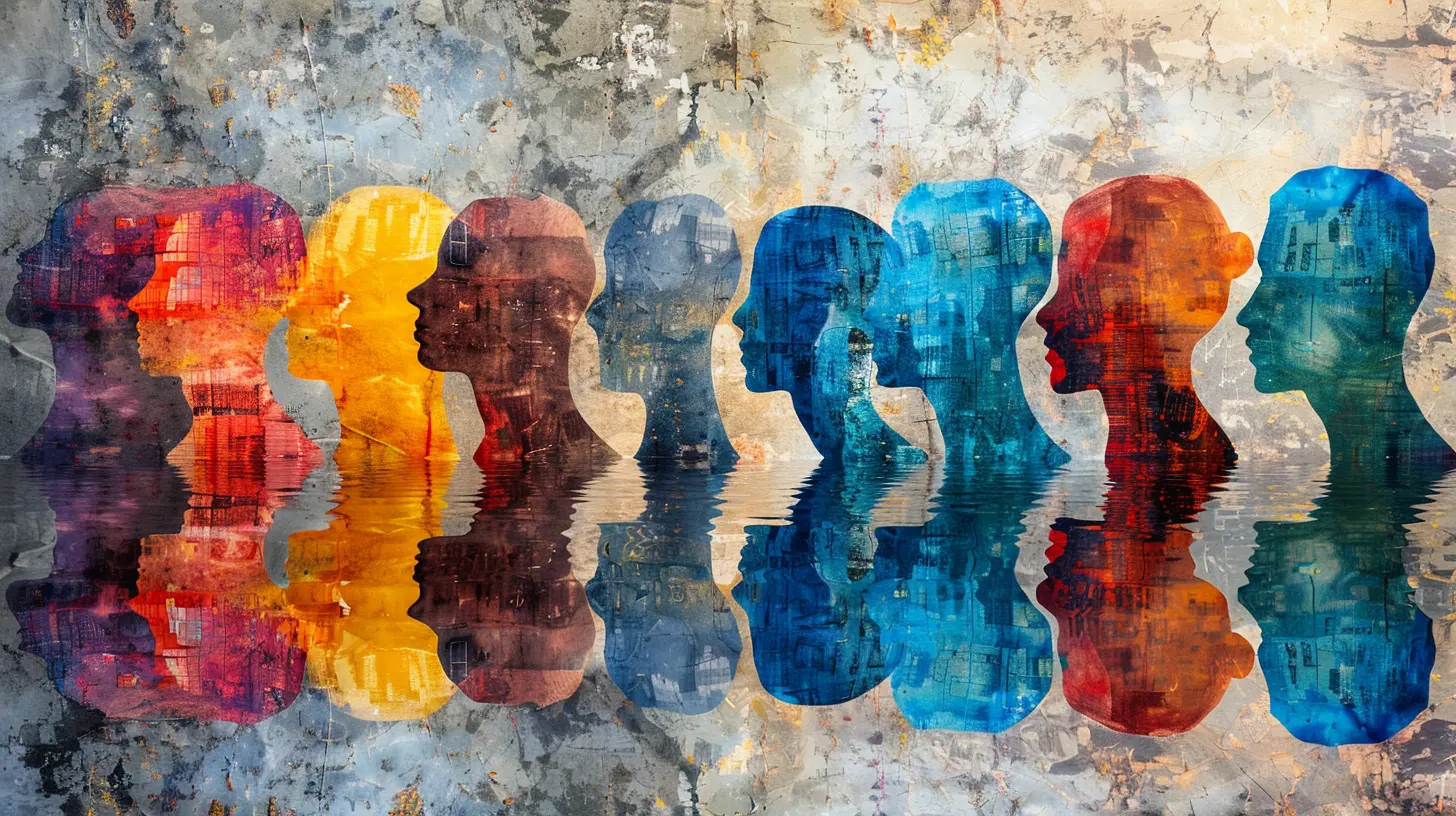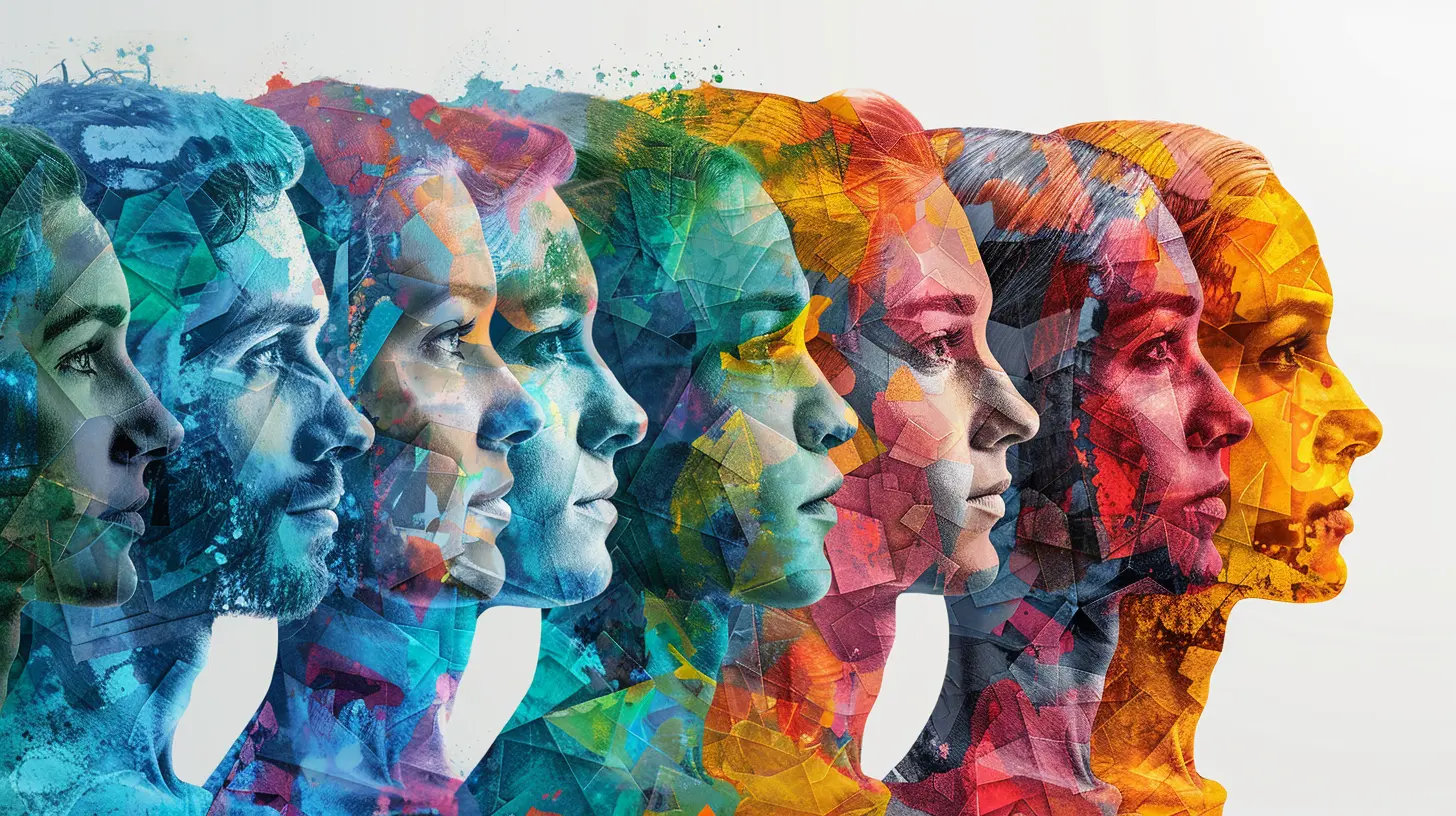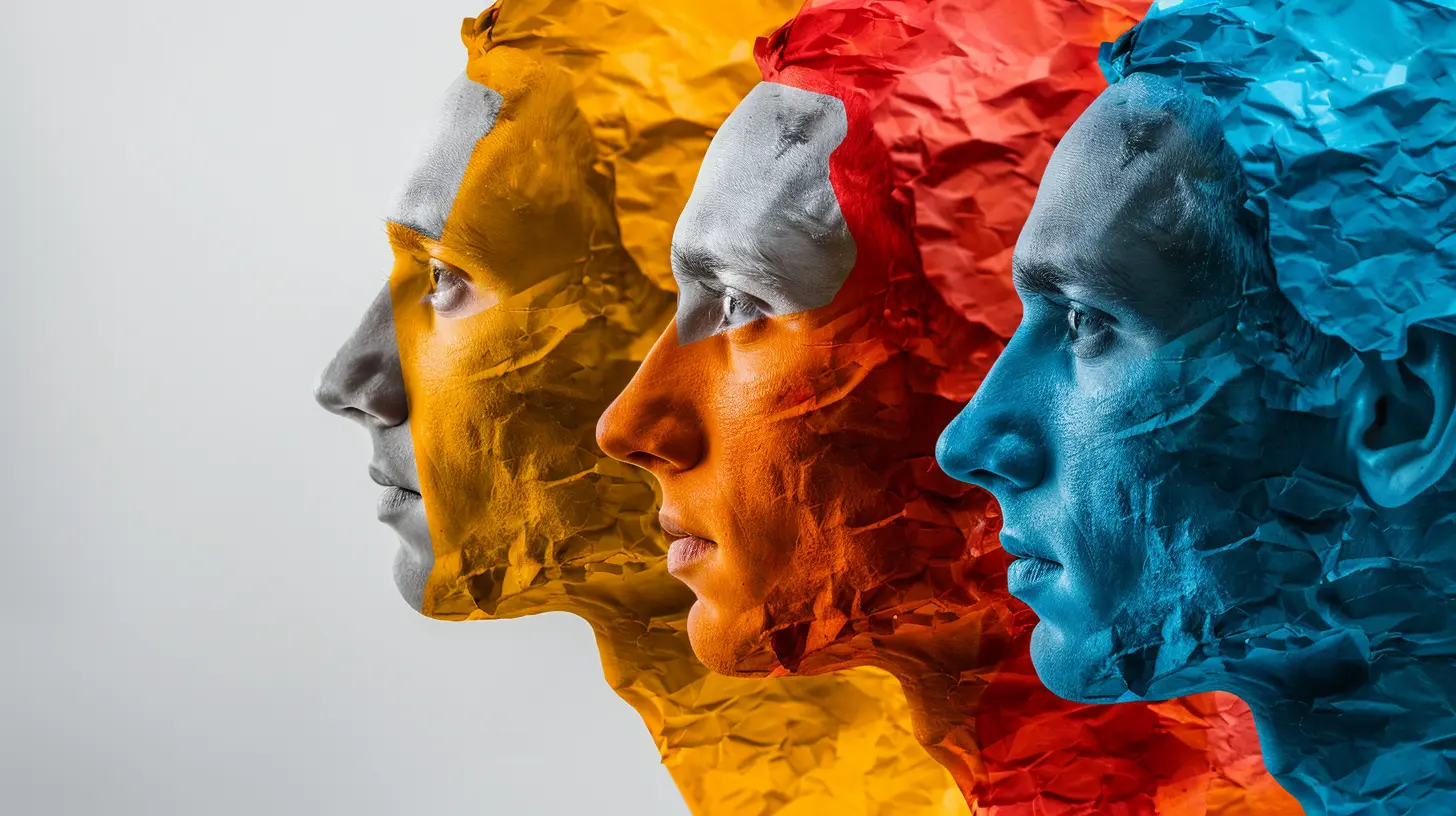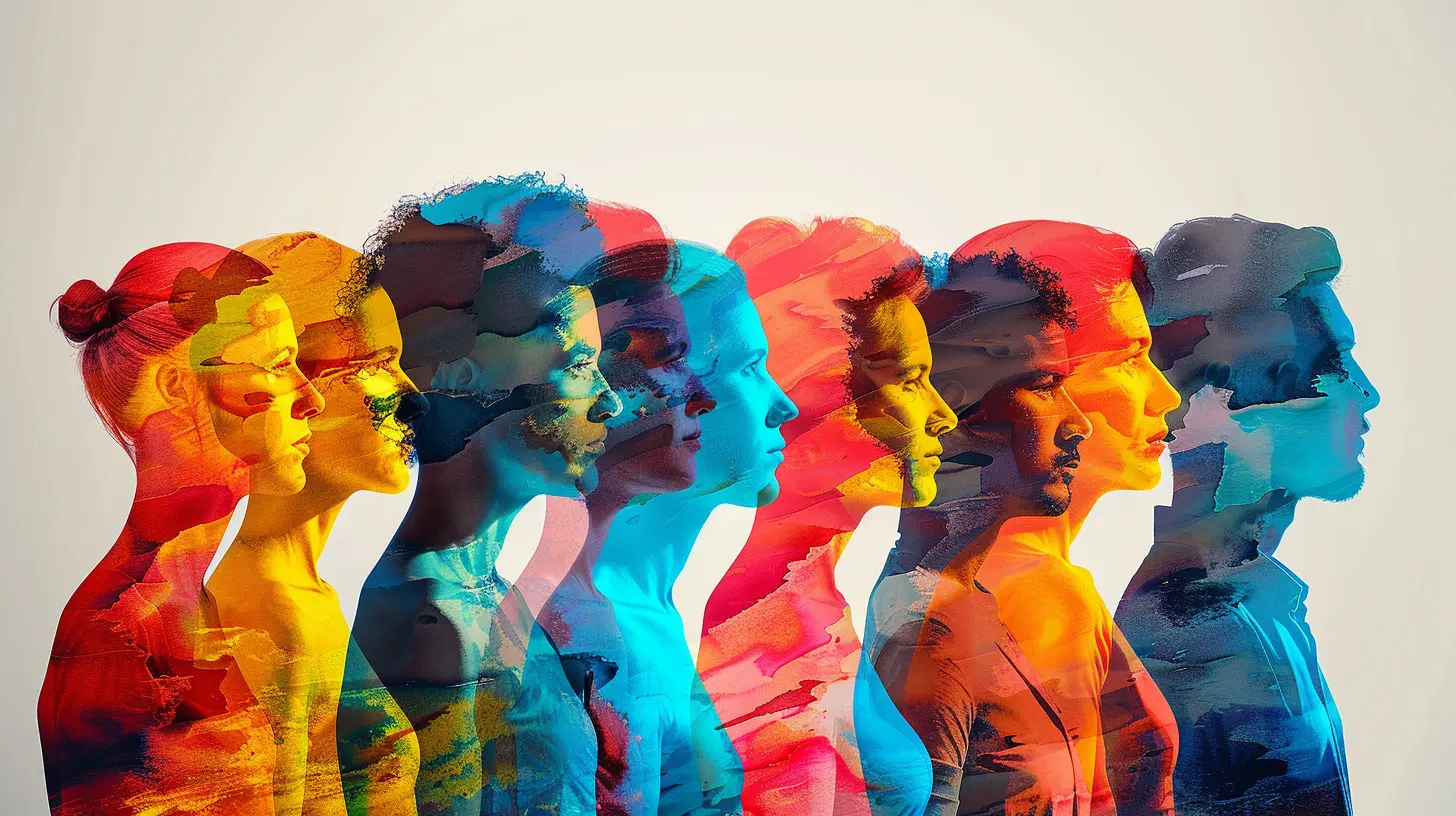The Role of Personality in Shaping Political Views
26 July 2025
Have you ever wondered why you and your best friend, who grew up in the same neighborhood, went to the same school, and maybe even had the same teachers, can end up with completely different political beliefs? It's not always just about upbringing or experiences. A big factor that often goes unnoticed is personality. Yep, the traits that make you uniquely you can also play a big role in how you see the world politically.
In this post, we're diving deep into how our personality traits—the ones psychologists study and measure—can help shape our political views. Why do some people lean left while others veer right? Why are some individuals more open to change, while others prefer preserving tradition? Let’s find out.
What Exactly Is Personality?
Before we can talk about how personality affects politics, we need to understand what personality really is. At its core, personality is the stable set of characteristics and tendencies that influence how we think, feel, and behave. In psychology, the most commonly used model to understand personality is the Big Five Personality Traits.These five traits are:
1. Openness to Experience – How open you are to new experiences, ideas, and change.
2. Conscientiousness – How organized, disciplined, and achievement-focused you are.
3. Extraversion – How outgoing and socially energetic you are.
4. Agreeableness – How compassionate and cooperative versus suspicious and antagonistic you are.
5. Neuroticism – How sensitive you are to negative emotions like anxiety or anger.
Everyone has some level of each of these traits, and the combination forms your unique personality profile.
The Link Between Personality and Political Views
So how does personality tie into politics? Well, research has shown strong correlations between certain personality traits and political ideologies. These aren’t just random connections either—they make psychological sense.Let’s break it down trait by trait.
Openness to Experience: The Ideological Adventurer
If you're someone who scores high in openness, chances are you're curious, imaginative, and open-minded. You love exploring new ideas, cultures, and ways of life. Politically, this often translates to more liberal or progressive views.Why? Because liberal ideologies tend to favor change, innovation, and embracing diversity. If your mind is naturally wired to explore and accept things that are different from what you’re used to, you’re more likely to support political platforms that push for social change, inclusivity, and reform.
On the flip side, someone low in openness may prefer tradition, structure, and familiarity. They might be more skeptical of radical change or complex policy reforms. This personality trait often correlates with more conservative views.
Conscientiousness: The Guardian of Order
High conscientiousness often equals a love for order, rules, and structure. If that sounds like you, you probably value responsibility, hard work, and self-discipline. Politically, conscientious individuals tend to lean conservative, especially on issues related to law, order, and personal accountability.Think about it—being conscientious often means valuing stability and the "status quo." Conservative ideologies often emphasize tradition, rule-following, and social order, which align well with conscientious personalities.
Interestingly, there's a nuance here. A highly conscientious person might support progressive economic policies if they see them as responsible or fair, even if they're socially conservative.
Extraversion: The Social Butterfly of the Political World
Extraverts, as you'd guess, are energetic, social, and often thrive in group settings. Their political leanings can vary, but their level of engagement in political activities often tends to be higher. They’re the ones attending rallies, organizing debate nights, and speaking up in political discussions at the dinner table.Unlike openness or conscientiousness, extraversion doesn’t predict political ideology so much as it predicts political participation. Whether left or right, extraverts are often highly visible in political spaces.
Agreeableness: The Peacemaker
If you're high in agreeableness, you probably care deeply about others' well-being. You're compassionate, empathetic, and cooperative. People with this trait are often drawn to liberal ideologies, particularly those that focus on equal rights, social justice, and welfare programs.However, agreeableness can also lead to conservative views, especially if an individual emphasizes community over the individual. For example, a highly agreeable person might support traditional family values or policies that promote social harmony, even if they’re more conservative in origin.
Neuroticism: The Worrier
People high in neuroticism are more prone to anxiety, stress, and emotional instability. How this ties into politics is quite fascinating.Higher neuroticism can lead to a stronger emotional reaction to political events. These individuals may support policies that offer more security—whether that’s national defense or healthcare coverage. Depending on the individual’s specific fears and values, neuroticism could contribute to either liberal or conservative leanings.
Someone worried about national security might lean conservative, while someone anxious about social injustice might lean liberal. It’s all about what emotional concerns are most salient to the person.
Nature, Nurture, or Both?
So does your personality determine your political views? Not exactly. While personality provides a psychological foundation, it’s just one piece of the puzzle. Your environment, life experiences, upbringing, education, peer group, and even the media you consume all play a role.Think of personality as the soil, and your experiences and environment as the seeds. Depending on what you plant and how you nurture it, you get different political "plants."
Also, keep in mind that political views can change over time, especially as people go through major life changes, like becoming a parent, losing a job, or experiencing a health crisis. These events can shift priorities, which might push someone toward a different political outlook.
Why This Understanding Matters
Understanding the psychological roots of political beliefs can help us become more compassionate and tolerant. Rather than writing someone off as "crazy" or "ignorant" for thinking differently, recognizing that their personality traits influence how they see the world can lead to more respectful dialogue.It also helps explain why changing someone’s political opinion is so hard. You're not just arguing ideas—you’re bumping up against core personality traits, and those don’t change easily.
Personality Types and Political Messaging
Here’s another interesting twist: political campaigns and parties often tailor their messages based on personality profiles. Social media algorithms, for example, feed users content that resonates with their underlying values and psychological tendencies.Someone high in openness might get ads about climate change and human rights. Someone high in conscientiousness might see messages about law enforcement and economic responsibility. It’s all carefully designed to tap into what you already care about.
Can You Use Personality to Predict Voting Behavior?
To some extent, yes. Personality traits can be used as predictors of voter behavior, especially when combined with other variables like age, education level, and geographic location. Campaign strategists, political psychologists, and data scientists often rely on this kind of analysis.But remember, human behavior is rarely black and white. While trends and patterns exist, individuals are complex. For every conscientious conservative, there might be an equally conscientious liberal using their discipline to fight for systemic change.
Final Thoughts: It’s Not One-Size-Fits-All
At the end of the day, your political beliefs are shaped by a beautiful, tangled web of personality traits, life experiences, and cultural influences. And that's what makes democracy so interesting. We all bring different lenses to the table.So next time you're in a heated political debate, take a step back and think—maybe it's not just about facts and figures. Maybe you're both simply speaking from different psychological blueprints. And perhaps the world needs all of it: the dreamers, the planners, the skeptics, and the peacemakers.
If we can understand that, maybe—just maybe—we can start to build more bridges and burn fewer ones.
all images in this post were generated using AI tools
Category:
Personality TypesAuthor:

Janet Conrad
Discussion
rate this article
1 comments
Kaitlyn Bryant
Insightful perspective, thank you!
August 16, 2025 at 2:40 PM

Janet Conrad
Thank you for your kind words! I'm glad you found it insightful.


